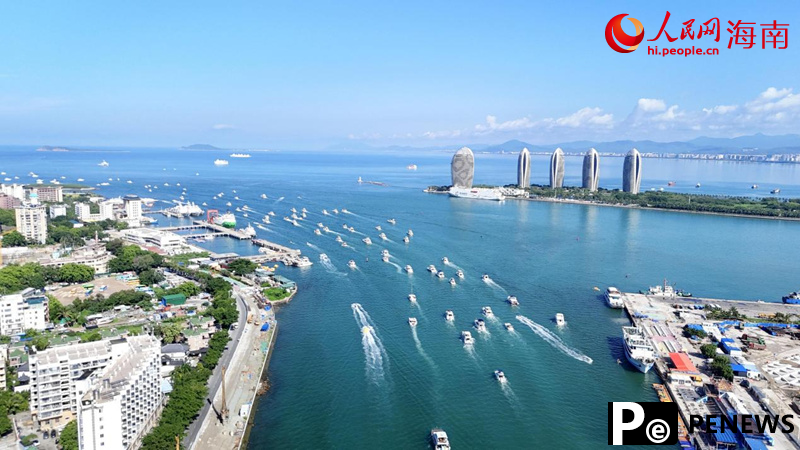Home>>People's Daily Online Exclusives
Farmers in NE China's Heilongjiang cultivate thriving rice business(People's Daily Online) 16:08, August 01, 2024
In Bohai township, Ning'an, a county-level city administered by Mudanjiang city, northeast China's Heilongjiang Province, the village of Shangguandi can be found. The village is a core area for one of the world’s unique resources, the “Shiban”, translated as rock board, fields and the “Shiban” rice they produce.
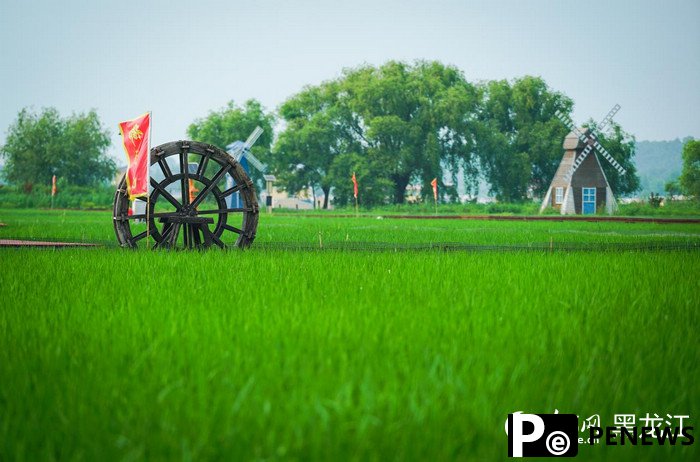
Photo shows “Shiban” rice fields in Shangguandi village, Bohai township, Ning'an, a county-level city administered by Mudanjiang city, northeast China's Heilongjiang Province. (People's Daily Online/Su Jinggang)
Chu Lijuan, Party chief of the village, is a veteran rice grower. Her daughter, Chen Yujia, returned to her hometown to embark on an entrepreneurial journey eight years ago.
The mother-daughter duo has led local villagers in transforming “Shiban” rice into wealth.
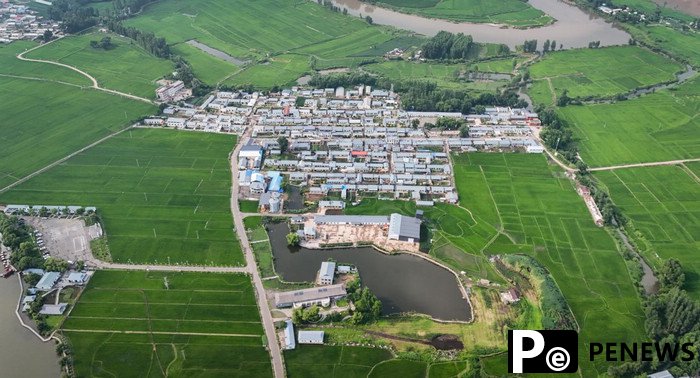
Aerial photo shows “Shiban” rice fields in Shangguandi village, Bohai township, Ning’an, a county-level city administered by Mudanjiang city, northeast China’s Heilongjiang Province. (People's Daily Online/Li Jiangrui)
Ning’an city, known as the “Hometown of China's Volcanic Rice”, boasts 85,000 mu (about 5,666.67 hectares) of “Shiban” fields.
Around 10,000 years ago, volcanic eruptions unleashed lava that eventually cooled and solidified, creating vast stretches of land made up of basalt. After thousands of years of erosion and weathering, a layer of loose, fertile humus soil was formed on the land. The soil, ranging from 10 to 30 centimeters thick, is rich in organic matter and minerals. These conditions are what have allowed the growing of “Shiban” rice.
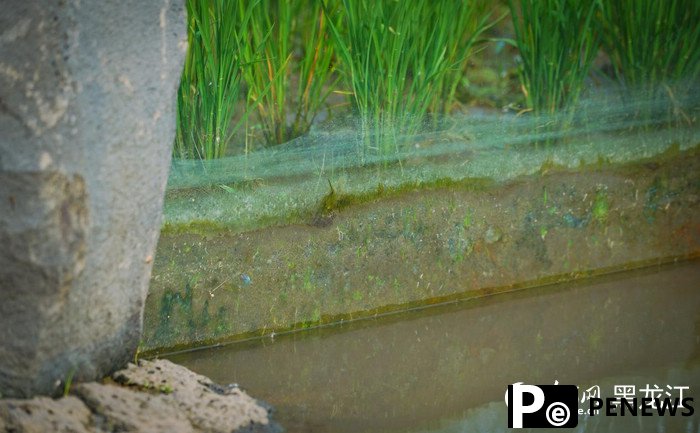
Photo shows a clear view of the cross-section of a rice field. (People's Daily Online/Su Jinggang)
How though, can rice be grown on rock boards?
Chen says, “Buried beneath the earth, these honeycomb-shaped stones work like heaters, soaking up warmth during the day and emitting it at night. This heat retention guarantees superior maturation of ‘Shiban’ rice.” This process is one of the reasons it has a superior taste to ordinary rice.
The local rice growers employ traditional farming methods like manual transplanting and harvesting to effectively protect the fields. They also use organic fertilizers to ensure rice quality.
With the help of weather monitoring equipment and field cameras, they achieve traceability and ensure quality and safety. In addition, solar powered insect traps are used to reduce pests in the rice fields.
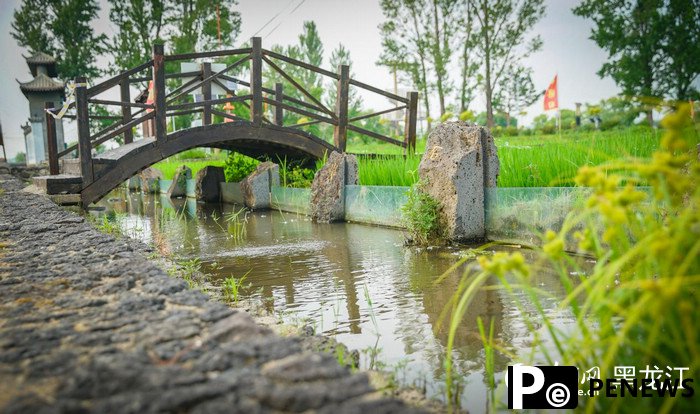
Photo shows a water channel for irrigation in a rice field located in Shangguandi village, Bohai township, Ning’an, a county-level city administered by Mudanjiang city, northeast China’s Heilongjiang Province. (People's Daily Online/Su Jinggang)
Beyond just growing quality rice, they are also taking steps to effectively market it.
In a glass-walled live-streaming room, live-streaming sessions are done to promote and sell locally grown rice on e-commerce platforms.
Chen, using the name “rice girl”, hosts livestreams where she explains the advantages offered by the “Shiban fields” and the ecological environment of the area. An expert now, but eight years before she was a complete outsider to the industry and could barely tell the difference between crops and weeds.

Farmers sell locally grown rice during a live-streaming session in Shangguandi village, Bohai township, Ning’an, a county-level city administered by Mudanjiang city, northeast China’s Heilongjiang Province. (People's Daily Online/Su Jinggang)
In 2008, Chu took the lead in establishing a cooperative in the village, rallying the local villagers to cultivate organic rice.
However, traditional sales methods proved to be a hurdle, and the villagers faced difficulties in making a decent living. Despite having high-quality rice, Chu grew worried about the lack of sales channels.
In 2016, Chen made the bold decision to leave a stable job and return to the village to assist in selling the rice.
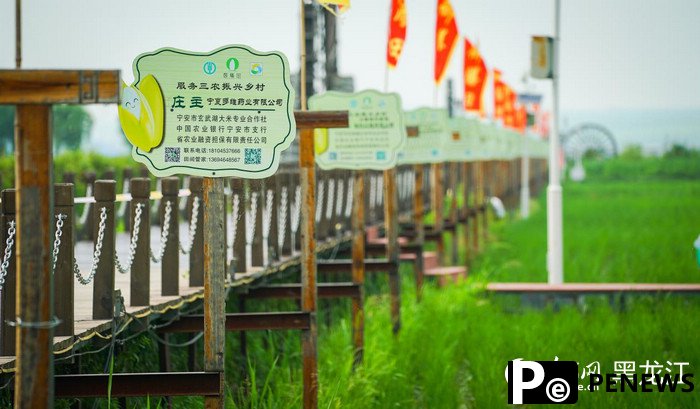
Photo shows plots of rice fields remotely owned by individuals in Shangguandi village, Bohai township, Ning’an, a county-level city administered by Mudanjiang city, northeast China’s Heilongjiang Province. (People's Daily Online/Su Jinggang)
Some villagers doubted Chen’s decision, believing she would soon return to the city. Chen persevered and with determination steadily built a foundation.








